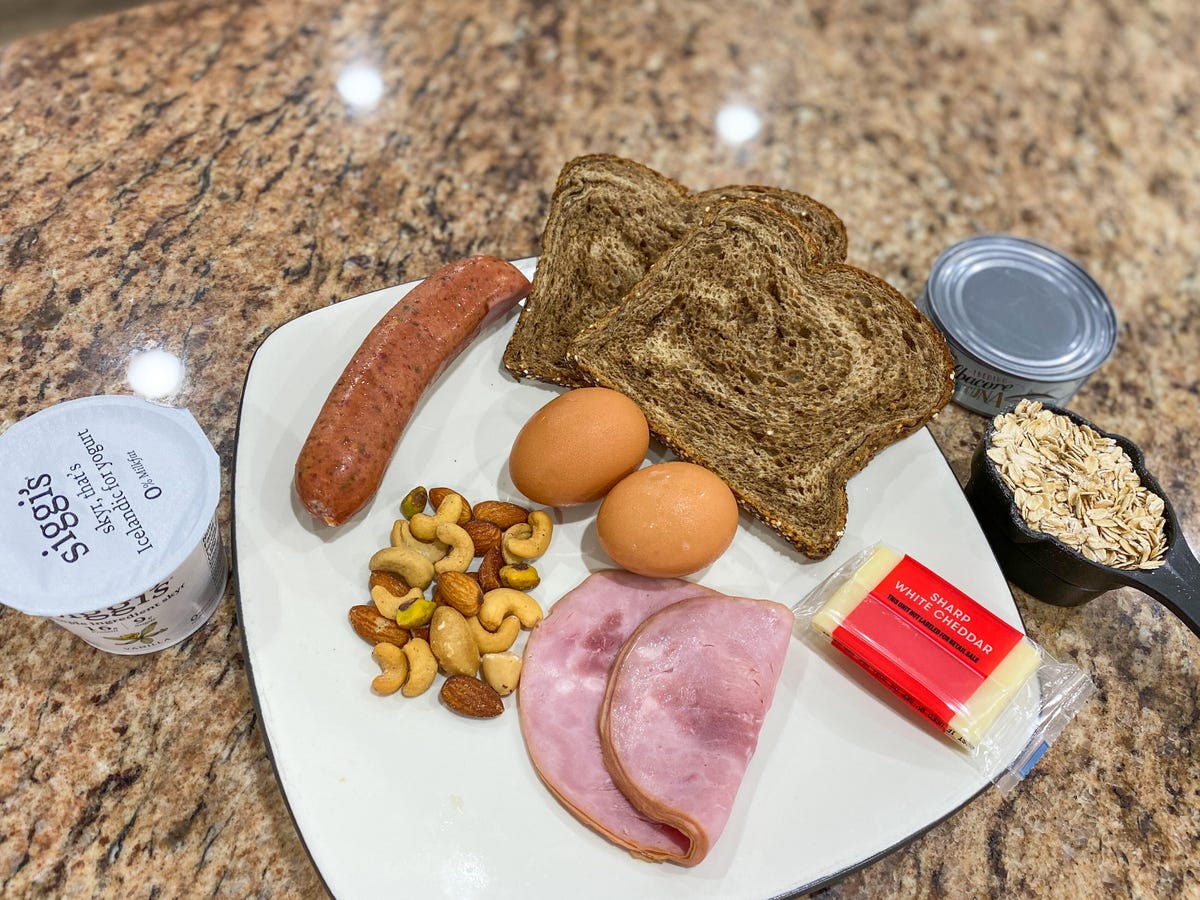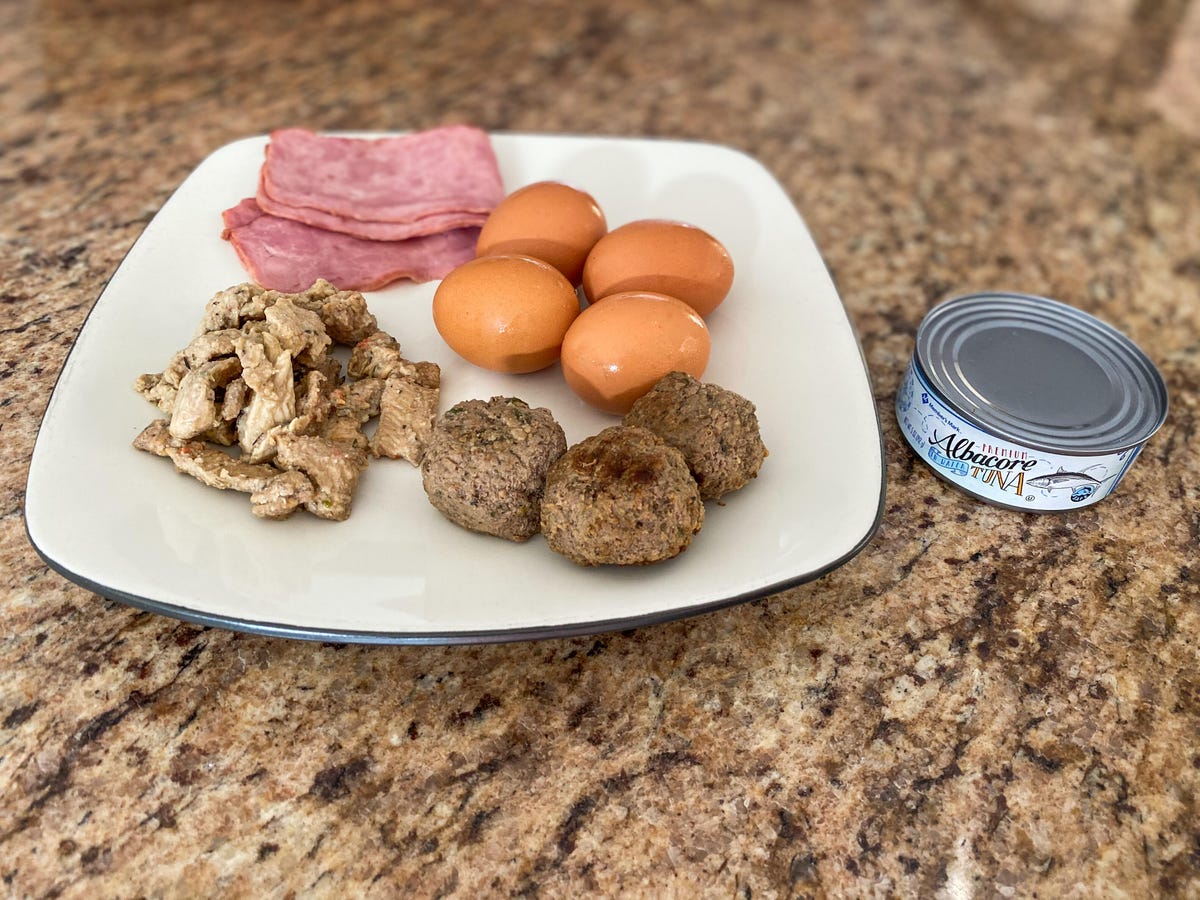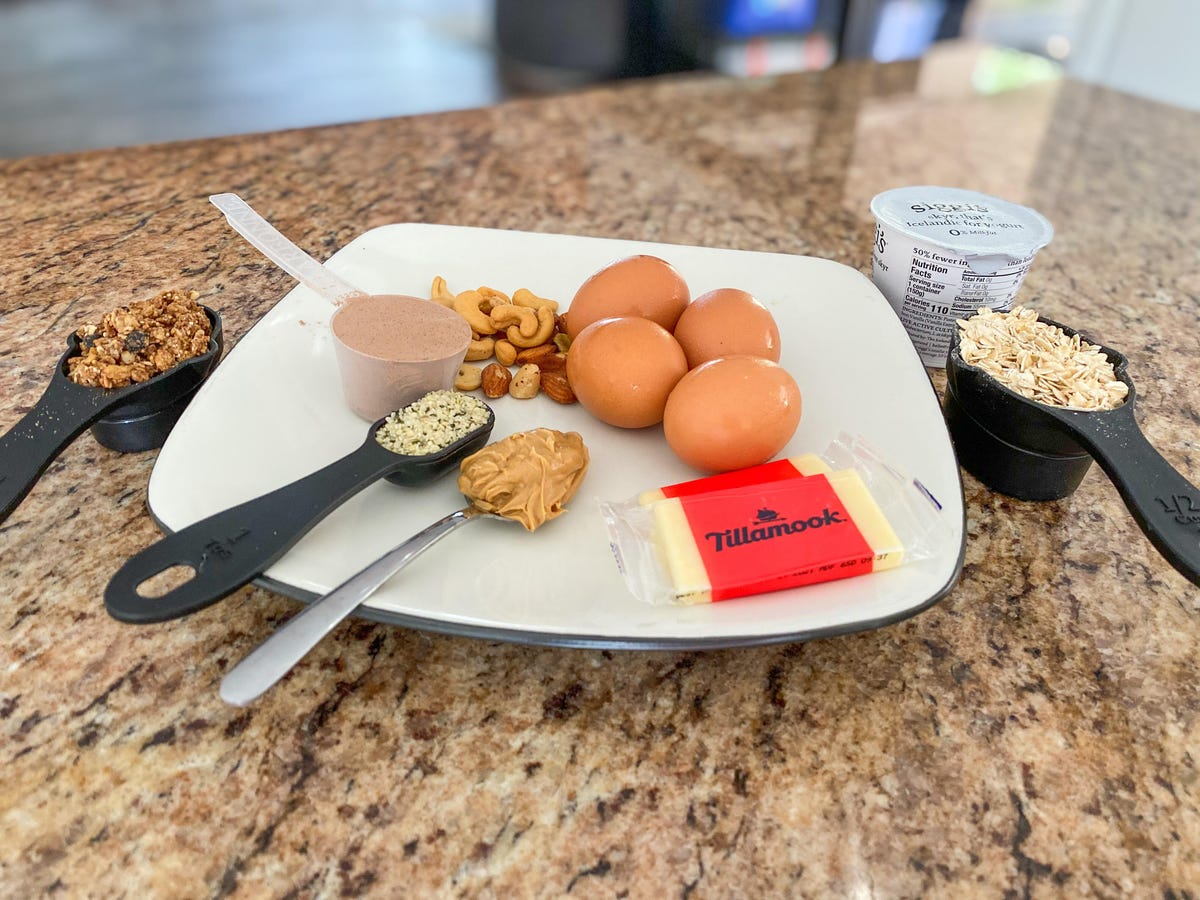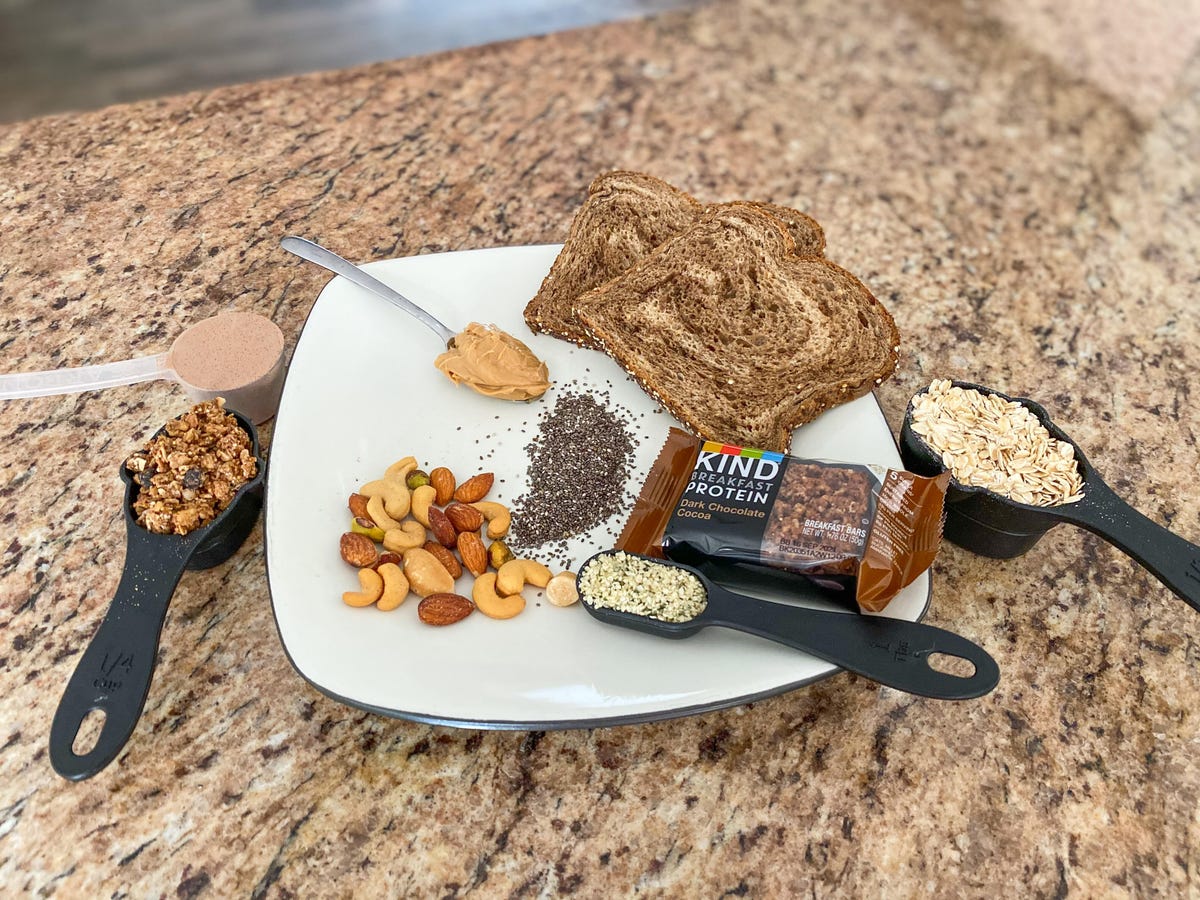You can’t live without protein, even if there are multiple ways to get it. Protein assists with regulating hormones, transporting molecules and acting as an enzyme for chemical reactions. The average person’s general goal is to eat about 100 grams of protein daily. However, the amount of protein you should consume changes based on how active you are, among other factors.
To help you achieve your daily needs, this visual guide shows what 100 grams of protein looks like, whether you follow a vegan, vegetarian or omnivore diet.
The grams were calculated by taking the information from the nutrition facts label on packaged items and weighing them when necessary. The gram amounts listed in this guide are specific to the products used for this experiment, so your numbers may vary if you look at a different brand for the following products.
What 100 grams of protein looks like for omnivores

Eating 100 grams of protein per day should be pretty easy if you don’t have any dietary restrictions. Here’s one way to do it
- Two eggs (12 grams)
- Snack cheese (5 grams)
- Greek yogurt (15 grams)
- Beef sausage (14 grams)
- One can of tuna (27 grams)
- ½ cup of rolled oats (5 grams)
- 2 ounces of deli ham (10 grams)
- 1 ounce of mixed nuts (5 grams)
- Two slices of rye bread (10 grams)
Everything pictured above comes to 103 grams, which puts you slightly over the goal of 100 grams.
What 100 grams of animal protein looks like

As you can see, getting 100 grams of protein from animal products doesn’t take much:
- Four eggs (24 grams)
- One can of tuna (27 grams)
- Three beef meatballs (15 grams)
- 2 ounces of turkey bacon (10 grams)
- 3 ounces of turkey breast (24 grams)
This amounts to a perfect 100 grams of protein. If you ate all of this in a day, plus bread and other nonanimal products, you would easily surpass 100 grams of protein in a day.
What 100 grams of protein looks like for vegetarians

For vegetarians, 100 grams of protein might look like this:
- Four eggs (24 grams)
- ½ cup of rolled oats (5 grams)
- Two snack cheeses (10 grams)
- ¼ cup of protein granola (10 grams)
- A single-serve Greek yogurt (15 grams)
- One tablespoon of hemp seeds (4 grams)
- Two tablespoons of peanut butter (7 grams)
- One scoop of plant-based protein powder (20 grams)
This actually comes out to 99 grams of protein, which is pretty close and still a great number to hit for a day.
What 100 grams of protein looks like for vegans

What you see isn’t totally what you get with the amount of protein here:
- 1 ounce of nuts (5 grams)
- ½ cup of rolled oats (5 grams)
- A protein granola bar (8 grams)
- Two slices of rye bread (10 grams)
- ¼ cup of protein granola (10 grams)
- One tablespoon of hemp seeds (4 grams)
- Two tablespoons of chia seeds (10 grams)
- Two tablespoons of peanut butter (7 grams)
- One scoop of plant-based protein powder (20 grams)
This amounts to 79 grams of protein. If we double up on the mixed nuts, chia seeds and hemp seeds, this brings us to 93 grams of protein. You could add an extra tablespoon of peanut butter or eat a full cup of oats, instead of half a cup, to come closer to 100 grams.
This plate also excludes high-protein vegan meat substitutes, such as tofu, tempeh or plant-based meats like the Impossible Burger. Those food sources can make it easier to get 100 grams of protein for someone who eats a vegan diet.